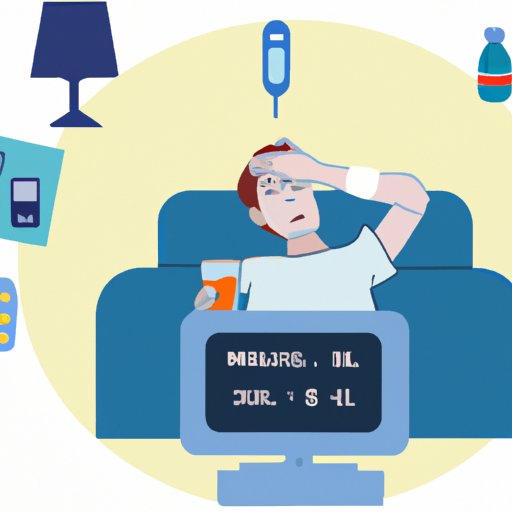Introduction
A concussion is a type of traumatic brain injury (TBI) caused by a bump, blow, or jolt to the head that changes the way your brain functions. While concussions are usually not life-threatening, they can still cause mild to severe symptoms that can last for days, weeks, or even months. If you or someone you know has sustained a concussion, it’s important to know how to take care of the injury at home.
Rest
The most important step in recovering from a concussion is to get plenty of rest. This means avoiding physical and mental exertion as much as possible. This includes activities such as exercising, playing sports, working on the computer, and studying. Taking breaks throughout the day and getting adequate sleep at night can help speed up the healing process.
Ice
Applying an ice pack to the affected area can help reduce swelling and pain. Ice packs should be applied for 15 to 20 minutes every two hours while awake. It’s also important to avoid applying heat to the affected area as this can worsen the symptoms.
Medication
Over-the-counter pain relievers such as ibuprofen and acetaminophen can help reduce swelling and pain associated with a concussion. It’s important to talk to your doctor before taking any medications as some types may interact with other medications you are taking. Your doctor may also prescribe medications to help reduce headache, nausea, and vomiting.
Light Exercise
Once the symptoms of a concussion have subsided, engaging in light exercises such as walking and stretching can help speed up the recovery process. It’s important to start slowly and increase the intensity of the activity gradually. Swimming, yoga, and tai chi are all good options as they are low-impact activities that will not put too much strain on the body.
Monitor Symptoms
It’s important to keep track of any changes in your symptoms. This includes documenting any headaches, dizziness, nausea, or fatigue. If any of these symptoms worsen, it’s important to contact your doctor right away.
Nutrition
Eating a healthy diet is essential for recovery. Foods rich in protein and omega-3 fatty acids are especially beneficial as they can help reduce inflammation in the brain. Eating smaller meals more frequently throughout the day can also help improve energy levels and prevent fatigue.
Follow Up Appointment
Scheduling a follow-up appointment with your doctor is an important step in recovering from a concussion. During the appointment, your doctor will assess your symptoms and may order additional tests to make sure there is no underlying damage. Following up with your doctor can also help ensure that any lingering symptoms are addressed and that you are doing everything you can to prevent further injury.
Conclusion
Taking care of a concussion at home involves getting plenty of rest, applying an ice pack, taking over-the-counter pain relievers, engaging in light exercise, monitoring symptoms, eating a healthy diet, and following up with a doctor. While these steps can help speed up the recovery process, it’s important to seek medical help if symptoms worsen. By taking the necessary precautions and seeking help when needed, you can help ensure a full and speedy recovery from a concussion.
(Note: Is this article not meeting your expectations? Do you have knowledge or insights to share? Unlock new opportunities and expand your reach by joining our authors team. Click Registration to join us and share your expertise with our readers.)
